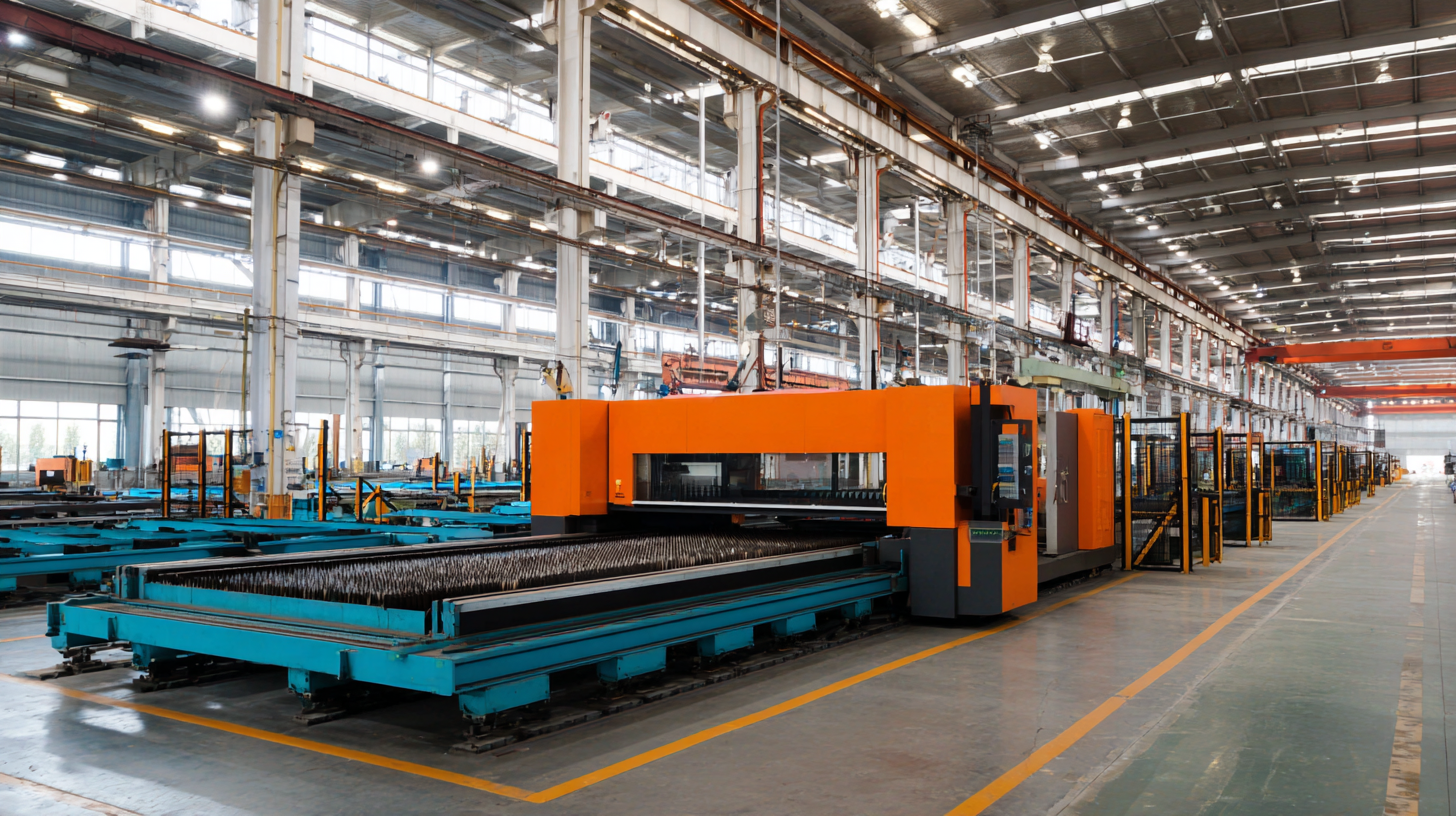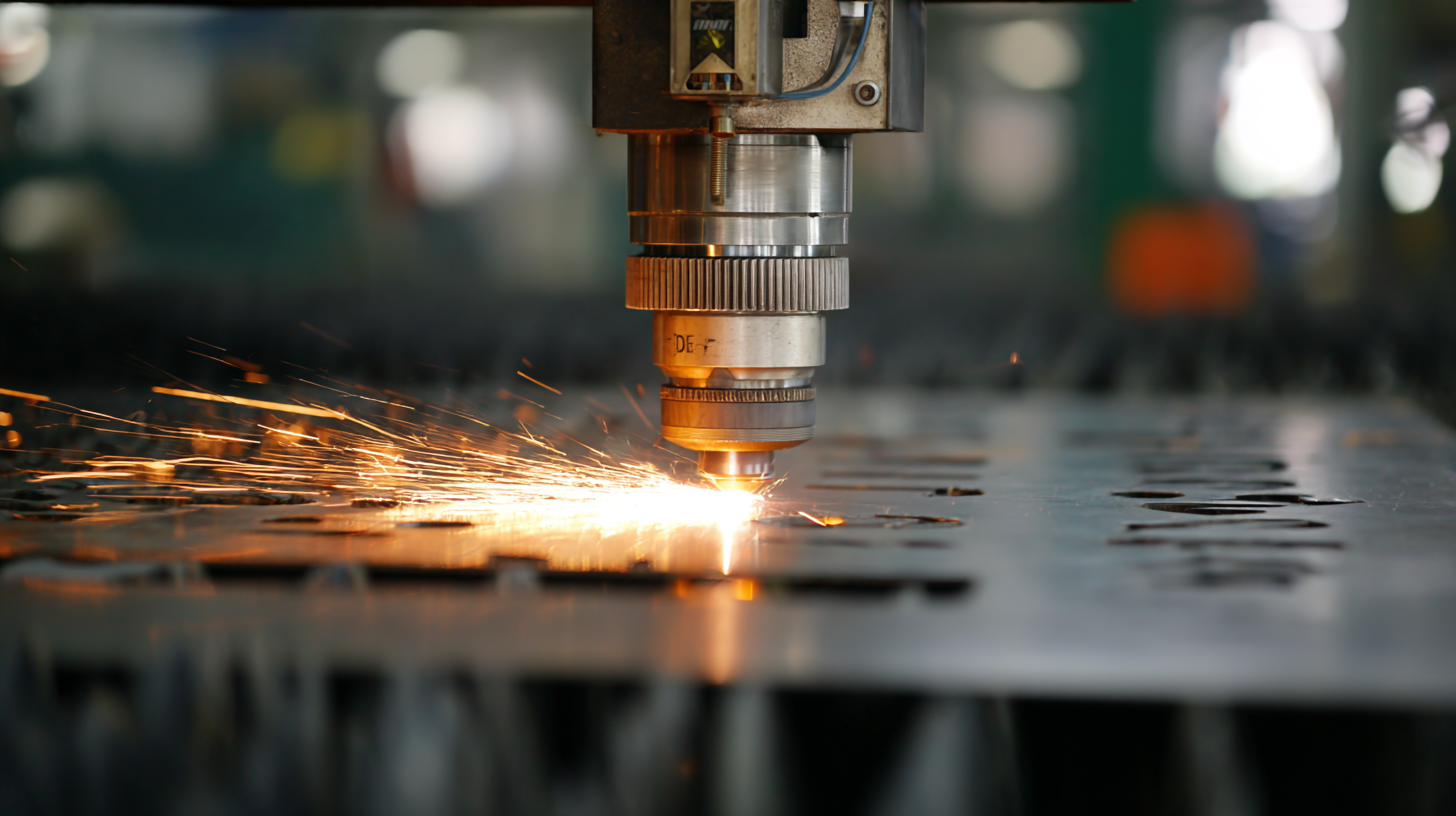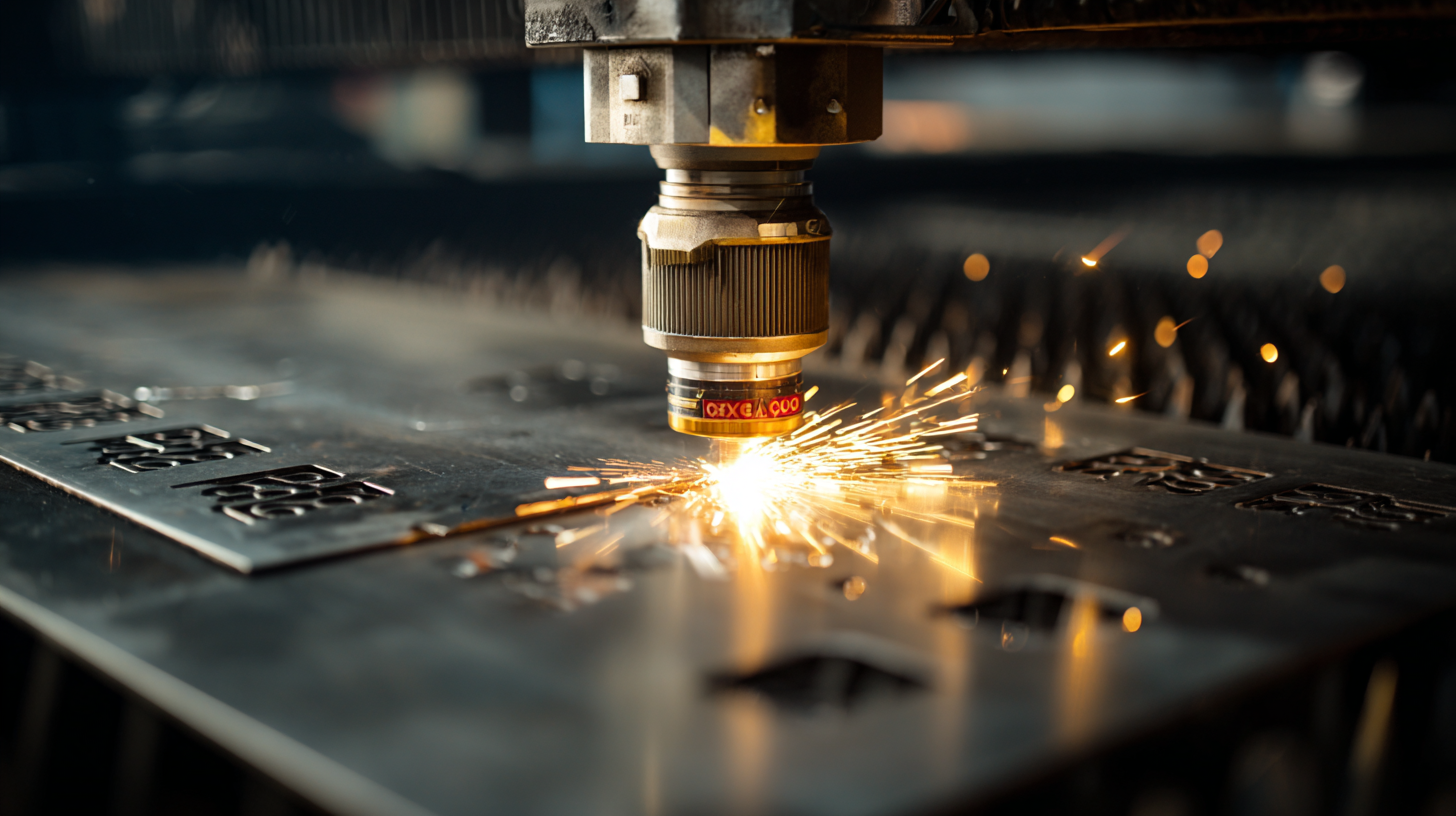
In the rapidly evolving landscape of global trade, the demand for precision and efficiency in manufacturing processes is paramount, especially in industries reliant on industrial CNC laser cutting machines. According to a report by MarketsandMarkets, the global market for laser cutting machines is projected to reach $6.25 billion by 2025, growing at a CAGR of 6.7%. As manufacturers seek to enhance productivity while ensuring compliance with international standards, navigating import and export certifications becomes critical. This guide will provide an overview of the essential certifications needed for industrial CNC laser cutting machines, enabling businesses to effectively manage their operations in a competitive global market. Understanding these requirements not only facilitates smoother transactions but also enhances quality assurance, ultimately leading to improved customer satisfaction and business success.

In the competitive landscape of global trade, the significance of import-export certifications cannot be overstated, particularly in the realm of CNC laser cutting machines. These certifications ensure that machines meet international standards for quality and safety, making them essential for manufacturers aiming to expand their market reach. Without proper certifications, businesses risk facing delays and regulatory challenges that can hinder their ability to compete effectively.
Moreover, possessing the right certifications not only boosts the credibility of a manufacturer but also instills confidence in potential buyers. Clients are increasingly inclined to choose suppliers that comply with stringent regulatory frameworks, as this assures them of the machinery's reliability and adherence to safety norms. Thus, investing time and resources into obtaining the necessary import-export certifications can provide a competitive edge, opening doors to new markets and fostering long-term growth in the CNC laser cutting industry.
This chart illustrates the distribution of various import-export certifications required for CNC laser cutting machines in global trade. Understanding these certifications is crucial for manufacturers and exporters to ensure compliance and access to international markets.
Industrial CNC laser cutting machines have become indispensable in modern manufacturing processes, especially in the metalworking sector. These machines are renowned for their precision and efficiency, capable of delivering intricate designs with minimal waste. For businesses looking to navigate the complexities of global trade, understanding the key technical specifications of these machines is essential. Factors such as cutting speed, laser power, bed size, and material compatibility significantly impact performance and productivity in a competitive market.
To optimize the laser cutting process, precision metal fabricators are now adopting a holistic approach that encompasses deburring, part leveling, and efficient part removal. By integrating automation into the blanking process, manufacturers can minimize manual labor and reduce lead times. This not only enhances production efficiency but also ensures that the final products meet high-quality standards without the need for extensive post-processing. As the demand for advanced CNC laser cutting technologies continues to grow, staying informed about key specifications and industry innovations will be crucial for companies aiming to maintain a competitive edge in global trade.
| Specification | Description | Importance |
|---|---|---|
| Laser Type | CO2, Fiber, Solid-state | Determines the material compatibility and cutting efficiency. |
| Cutting Speed | Range from 1 m/min to 60 m/min | Affects overall production time and efficiency. |
| Laser Power | From 100W to 4000W | Higher power can cut thicker materials. |
| Cutting Thickness | Up to 30mm for metals, 50mm for plastics | Determines the range of applications. |
| Certification Standards | ISO 9001, CE Marking, FDA Compliance | Ensures quality and safety in global trade. |
| Software Compatibility | Compatible with CAD/CAM software | Necessary for design implementation. |
When engaging in global trade, obtaining the necessary certifications for industrial CNC laser cutting machines is critical. The certification process can seem daunting, but following a structured approach can simplify the journey. First, research the specific certifications required for your target markets. Different countries have varying regulations, such as CE in Europe or FDA compliance in the United States. Understanding these requirements will provide clarity and direction for your certification efforts.
Tip: Start with a checklist of certification needs based on your destination countries. This will help prioritize which certifications to pursue first and streamline your application process.
Next, engage with recognized certification bodies and begin the application process. Be prepared for inspections and provide comprehensive documentation about your machine’s specifications, safety features, and operational guidelines. This is also a great time to ask for advice from industry experts or peers who have successfully navigated this path.
Tip: Maintaining accurate records and documentation throughout the manufacturing and design process can be immensely helpful. It not only expedites the certification process but also prepares your business for any unexpected challenges that may arise.
Navigating the complex landscape of global trade regulations for CNC machines presents a myriad of challenges, especially amidst rising political tensions and sanctions. The recent decision by China to ban critical mineral exports to the U.S. in retaliation for semiconductor controls underscores the interconnectedness of international trade and technology. Such measures can significantly impact industries reliant on specific components, including CNC laser cutting machines, which are integral in various manufacturing processes.
Manufacturers must also be aware of the recent sanctions imposed by the U.S. on 19 Indian firms linked to Russian defense trade, highlighting the ripple effects of geopolitics on industrial operations. As trade compliance teams navigate these turbulent waters, staying abreast of developments is crucial. For instance, businesses should regularly consult industry reports on sanctions and trade controls, which indicate that non-compliance can lead to severe penalties, affecting not just the firms involved but also their supply chains.

When it comes to the global trade of CNC laser cutting machines, compliance with import-export certifications is crucial. Best practices for maintaining these certifications begin with understanding the specific regulations in your target markets. Each country has its own set of guidelines governing safety, quality, and environmental impact. Regularly reviewing these requirements ensures that your machines not only meet legal standards but also foster trust among potential buyers.

Another essential aspect of certification maintenance is consistent documentation. Keeping detailed records of compliance processes, machine testing, and quality assurance can significantly expedite certification audits. Furthermore, collaborating with certification bodies and industry experts can provide valuable insights into evolving standards and practices. Engaging in continuous training for your team on compliance matters is equally important, as it empowers them to uphold the highest standards in their operations. By prioritizing these practices, manufacturers can enhance their credibility and competitiveness in the global CNC laser cutting market.

